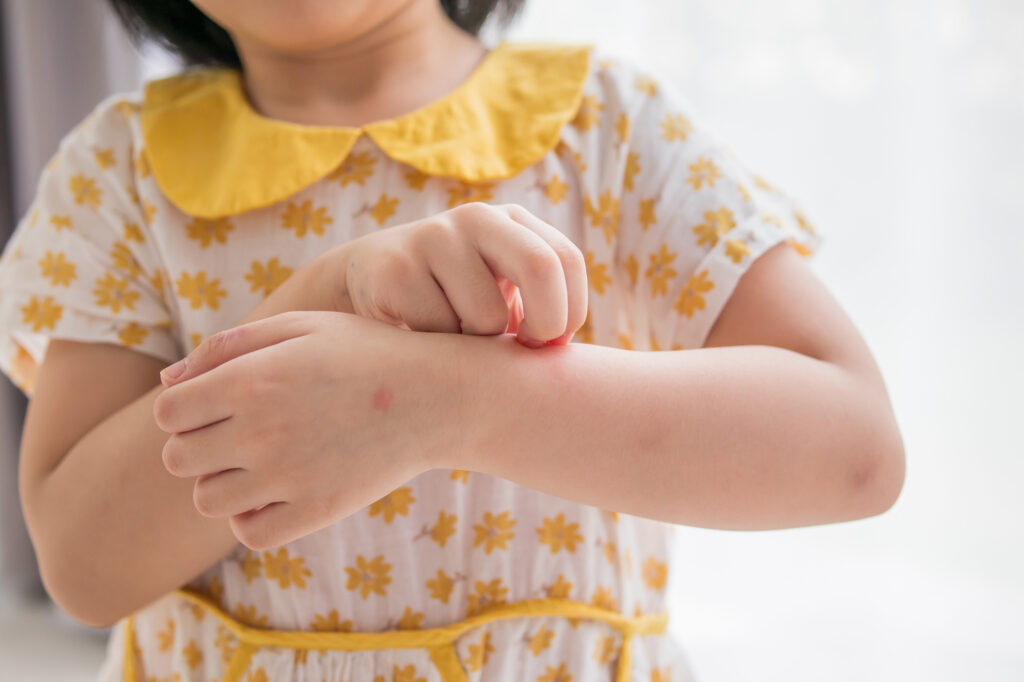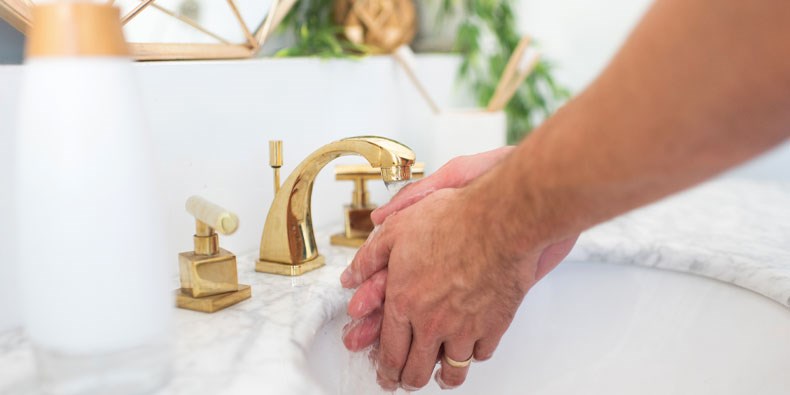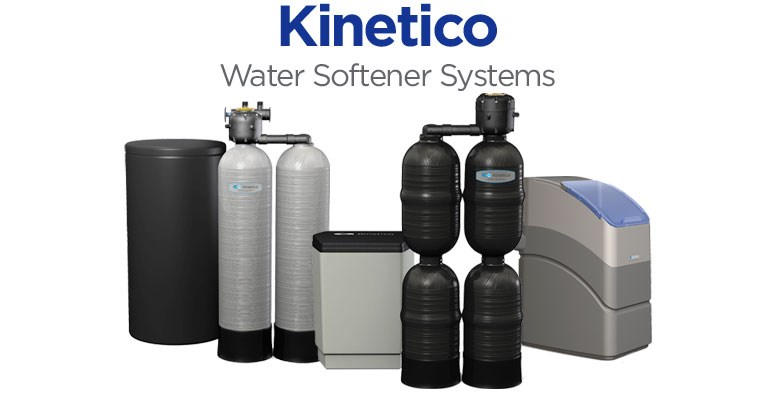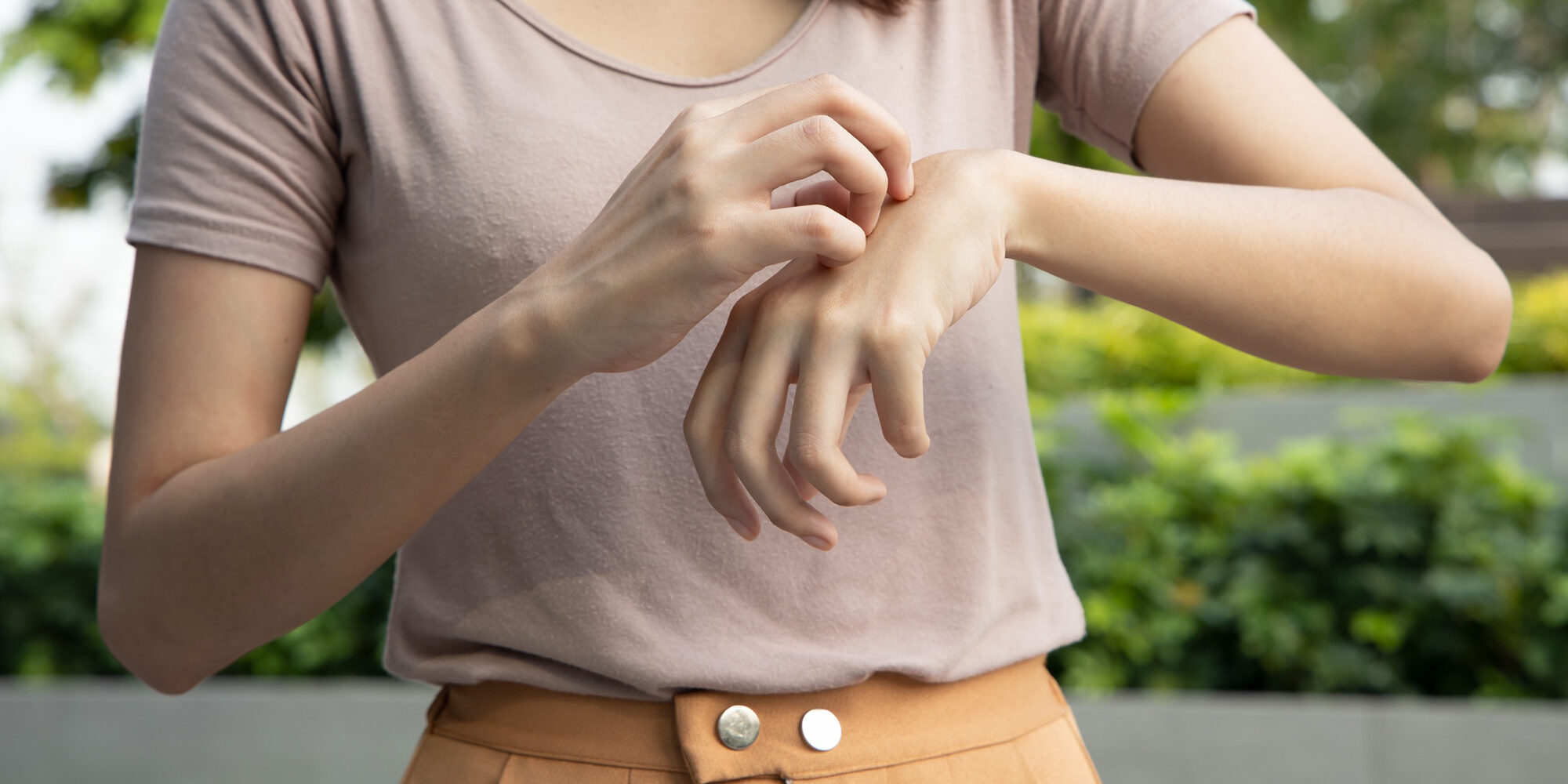Eczema, also known as “atopic dermatitis,” is a noncontagious, inflammatory skin condition that is characterized by severe itching, redness, oozing, and scaly rashes. These symptoms can be painful, and can cause changes in skin color and blisters. Allergy plays a role in some patients’ eczema.
Eczema comes and goes over time. It results in very dry and sensitive skin, and can be made worse by exposure to many different things, including allergens such as pet dander or dust mites. Other common triggers include cosmetics, soaps, detergents, lotions with heavy fragrances, and hard water. For some people, weather changes (especially dry winter air), illnesses such as the common cold, or even stress may make eczema worse.

Children and adults diagnosed with eczema can manage the condition with the guidance of an allergist. In cases of moderate or severe eczema, an allergist may recommend prescription medication, including topical steroids and/or antihistamines.
When skin feels dry and itchy, many people buy over-the-counter lotion and start lathering themselves from head to toe; however, lotion may not be the best solution. In some cases, skin irritation is caused or worsened by your water. In fact, hard water affects many people who suffer from chronic skin conditions.
WHAT IS HARD WATER?
Hard water by definition is water that contains dissolved rock and minerals like calcium and magnesium. When water filters through the earth, it can break down minerals and absorb them. When hard water dries or evaporates, it leaves behind scale made up of dissolved minerals and rock. If you bathe in hard water, some of this scale may be left on your skin causing dryness and irritation. But another culprit is when soap and hard water mix.
Together, soap and hard water form a film that doesn’t rinse away completely. This is the soapy film that causes bathtub rings or deposits on shower doors and curtains, but it also leaves that same residue on your skin and hair. This film often clogs pores and prevents the natural oils in your skin from lubricating your skin and helping it retain moisture. This can leave your skin sticky, dry or irritated.
If you suffer from a skin condition like eczema or psoriasis, hard water can make things worse. Although hard water does not cause eczema or psoriasis, studies suggest that hard water can damage the skin and contribute to the development of chronic skin conditions or worsen symptoms for those who already have a skin problem.
WHAT SHOULD YOU DO IF YOU HAVE HARD WATER AND ECZEMA IS A CONCERN?

If you live in a hard water area and are concerned about eczema, you should consult with a medical professional first. You may be advised to investigate water treatment options to improve the quality of the water you use for bathing and washing. Contact the Karsare Water Systems staff who will conduct a water test to determine the hardness level of your water. Once known, you can discuss the best options for treating your water. Most likely, your water treatment professional will recommend a water softener to treat hard water.
If you bathe in hard water, your skin is taking on hardness minerals. No matter how much soap or how hard you scrub, you cannot get rid of all the hardness minerals, which causes a film to form on your skin.
HOW DOES A WATER SOFTENER HELP WITH ECZEMA AND SKIN IRRITATION?
If you suffer from eczema, psoriasis or even dry skin, a water softener may help improve your skin condition. Water softeners use a process called ion exchange to treat hard water. The tanks of a water softener contain a bed of resin with soft ions.
When hard water enters the resin bed, the hard ions (calcium/magnesium) are exchanged for soft ions (sodium). With this exchange, hard ions cling to the resin and soft ions are now in the water as it leaves the water system and flows throughout your home. It is important to note that a water softener and soft water do not cure skin conditions like eczema and psoriasis; however, many have found soft water reduces skin irritation and flare ups.

If your doctor recommends a water system as part of your skin treatment plan, or you want to see if soft water helps, contact Karsare Water Systems to schedule a water test. Based on the water test results, the Karsare Water professional will provide you with treatment options that fit your needs and your budget. Kinetico offers a wide range of water softeners, chlorine removal systems and specialty water filters to soften and improve your water. They offer traditional water softeners and whole-home water filters as well as systems that do not use salt. Whatever your needs, Kinetico has a solution for you.







